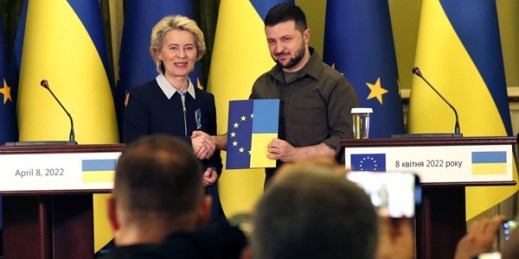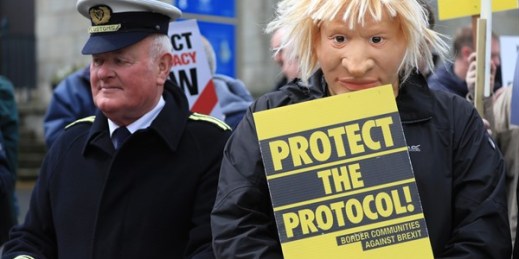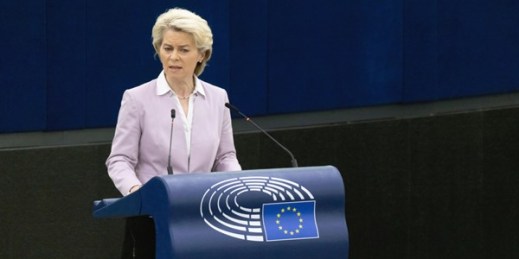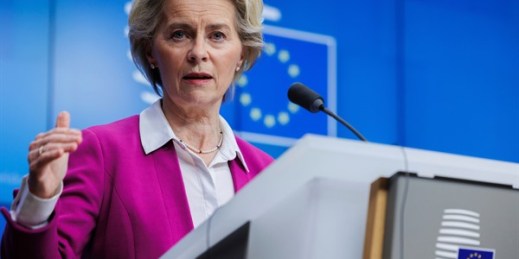
The European Union’s 27 leaders have formally approved candidate status for Ukraine and Moldova to join the union, marking the first step toward full EU membership for the two countries. The move has renewed a contentious debate within the EU over expansion, given the longstanding assumption that there would be no movement toward any EU enlargement until at least 2024. “Even a month or so ago the idea that Ukraine might get candidate status seemed quite far-fetched to many,” noted one EU diplomat. EU members from the bloc’s east have pushed for Ukraine’s candidate status to be expedited since Russian […]



